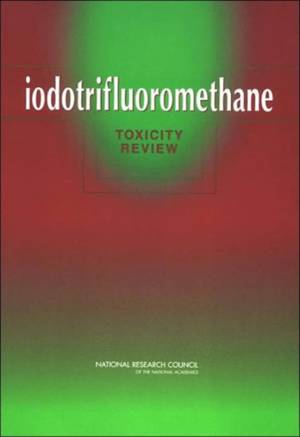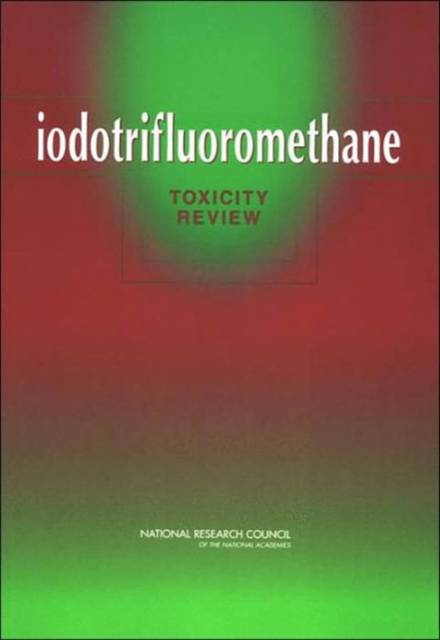
- Afhalen na 1 uur in een winkel met voorraad
- Gratis thuislevering in België vanaf € 30
- Ruim aanbod met 7 miljoen producten
- Afhalen na 1 uur in een winkel met voorraad
- Gratis thuislevering in België vanaf € 30
- Ruim aanbod met 7 miljoen producten
Zoeken
Iodotrifluoromethane
Toxicity Review
National Research Council, Division on Earth and Life Studies, Board on Environmental Studies and Toxicology, Committee on Toxicology, Subcommittee on Iodotrifluoromethane
Paperback | Engels
€ 60,95
+ 121 punten
Omschrijving
The U.S. military is considering using a compound called iodotrifluoromethane (CF3I) for fire suppression to replace previously-used compounds (halons) that are being phased out because they deplete the ozone layer. This report reviews available toxicological data on CF3I and evaluates the scientific basis of the U.S. Army's proposed exposure limit of 2,000 parts per million (ppm). The report recommends that CF3I be used for fire suppression in normally unoccupied spaces because of its potential to cause cardiac sensitization in test animals. The report also recommends that further genotoxicity testing be conducted (testing for changes in genetic material), and that CF3I be assessed for its potential to cause cancer. Should the Army decide to use CF3I, information should be collected and evaluated on how much of the chemical or any of its degradation products might be released and how often.
Specificaties
Betrokkenen
- Auteur(s):
- Uitgeverij:
Inhoud
- Aantal bladzijden:
- 112
- Taal:
- Engels
Eigenschappen
- Productcode (EAN):
- 9780309093071
- Verschijningsdatum:
- 23/12/2004
- Uitvoering:
- Paperback
- Formaat:
- Trade paperback (VS)
- Afmetingen:
- 152 mm x 229 mm

Alleen bij Standaard Boekhandel
+ 121 punten op je klantenkaart van Standaard Boekhandel
Beoordelingen
We publiceren alleen reviews die voldoen aan de voorwaarden voor reviews. Bekijk onze voorwaarden voor reviews.








